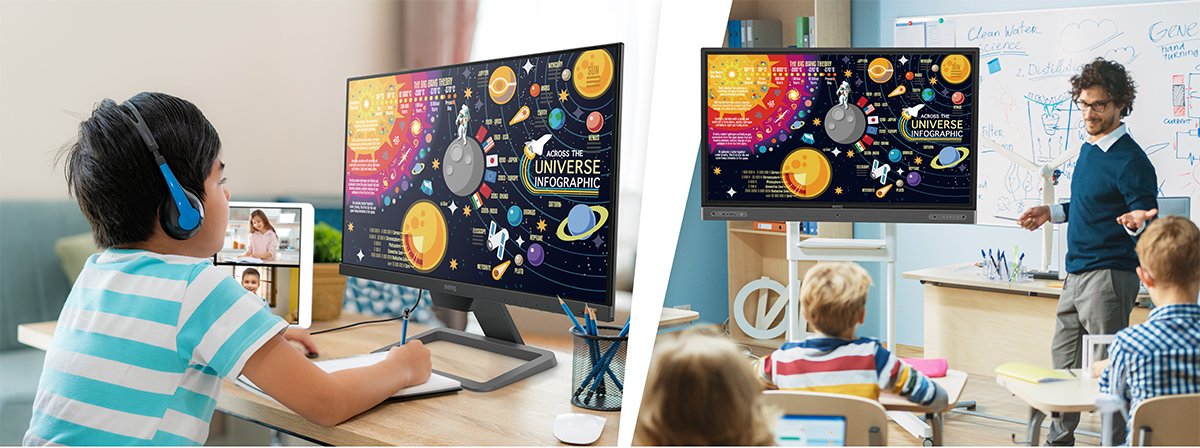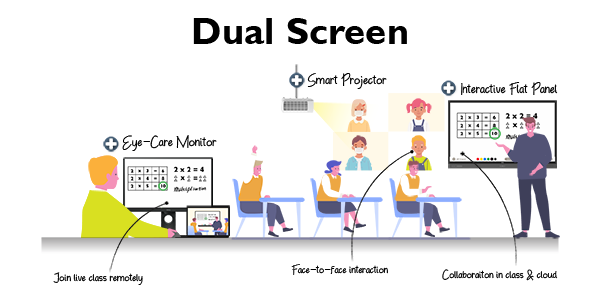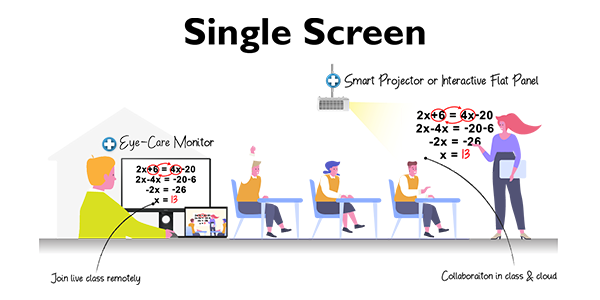Isolation, reduced activity, disrupted routines. These are the effects of Covid-19, and the ensuing school closures, have on our children. Factors which impact a child’s well-being long after school has resumed; something that empirical studies support and that teachers know from experience to be true.
Covid-19 has created considerable challenges for teachers
In an OECD investigation into school disruption caused by Covid-19, 67.5% of teachers surveyed stated that special support measures will be needed for students in psychological distress once schools re-open. Furthermore, in preparation for their reopening, schools are undertaking a number of activities to protect health, including developing new hygiene standards, deep cleaning of school facilities and more. While teachers have long understood education is about the ‘whole child’, in this peri- pandemic world, balancing health, collaboration and quality education, needs to be the new norm.


Could blended learning be the answer?
The challenge is considerable. Traditional classrooms are not designed with social distancing in mind. To comply with good health practices European schools are turning to blended learning – a mix of online (distance) and face-to-face (in-class) delivery. By alternating sessions of in-class learning with online learning, class sizes can be limited to a maximum of 10-15 students. However, using traditional blended learning practices for post pandemic, may mean a compromise in educational outcomes. For example, with the increase in remote learning time, students may feel isolated, or be distracted and teachers cannot assess student’s engagement level. How can offline students participate in group work? And how can in-person and distance learners receive the same education at once?
A smarter brand of blended learning
The answer lies in selecting suitable classroom technology. With the right solution, teachers can instruct remote and in-class students simultaneously, see on-line students’ reactions in real time, answer questions and ensure every student feels like they are in the same classroom.
Choosing the right classroom technology for your needs
However, it is not a case of one size fits all. Different situations require different solutions. With smart interactive displays, classroom projectors and monitors for learning from home, students can be in class whilst out of school. How do you choose what technology to use? As an education-solutions supplier, here are our tips for selecting the right technology tools for a smarter standard of blended learning. These solutions allow:
• Teachers to see all students’ reactions, be they in-class or online
• Remote students to interact with each other
• Offline and online students to communicate and collaborate
• All students to receive the same content at the same time



For large-sized classrooms

For small-sized classrooms
• For larger classrooms:in larger classrooms two screens mean a multitude of advantages. See real reactions from remote students by placing a ClassroomCare® Interactive Flat Panel with a webcam in the centre of the classroom as the main teaching tool, and a Smart Projector as a second display for the teacher. Share teaching materials and collaborate using your own videoconferencing software and whiteboard software.
• For small-sized classrooms:a Smart projector for Classrooms is a complete choice in itself. Our Smart Projector has built-in internet connectivity and web browser, enabling videoconferencing and wireless sharing of teaching material from your mobile device, tablet or notebook.
• For group collaborations:remote need not mean isolated. Remote students can enter the same class using the Cloud Whiteboard via the EZWrite Live Online Whiteboarding App and students can pair their laptops or tablet with an Eye-Care Monitor for a larger, healthier viewing experience.
Built in health features for student and teacher protection
Of course, health concerns must always be considered. Germ transmission, poor indoor air quality and additional screen time, which can cause eye strain and myopia, are key contributors to school absenteeism. We understand keenly the importance of student health and our products incorporate features to address these concerns, such as:
• Germ-Resistant Screens:our third generation interactive display screens incorporate higher concentrations of nano-ionic silver compounds, cured together with anti-glare coating and tempered glass. This gives the screen longer-lasting anti-bacteria properties than any conventional germ-resistant screen or spray on the market.
• Smart Eye-Care Solutions:whether a student is using a monitor for learning from home or school, blended learning means an increase in screen time and exposure to blue light and flickers, potentially causing digital eye strain. Both laptops and PC’s can be connected to an Eye-care Monitor giving students greater comfort and ensuring that increased screen time doesn’t take a toll on a student’s eyesight.
• Air Quality Sensors:poor indoor air quality and ventilation can cause coughing, eye irritation, allergic reaction, asthma, headache, and disease transmission, all of which impact a students’ academic performance. With built-in Air Quality Sensors inside the interactive display panel, key environmental parameters in classrooms are measured and displayed including temperature, humidity, PM 2.5, P10, CO2 and Volatile Organic Compound (VOC) concentration levels. This allows teachers to intervene with appropriate actions such as opening windows or adjusting air conditioning, in real-time.
Health, educational parity and excellence, communication, and collaboration – this is what teachers must consider in a post Covid world – and our products are designed to help you do just that. Get a quote today.
